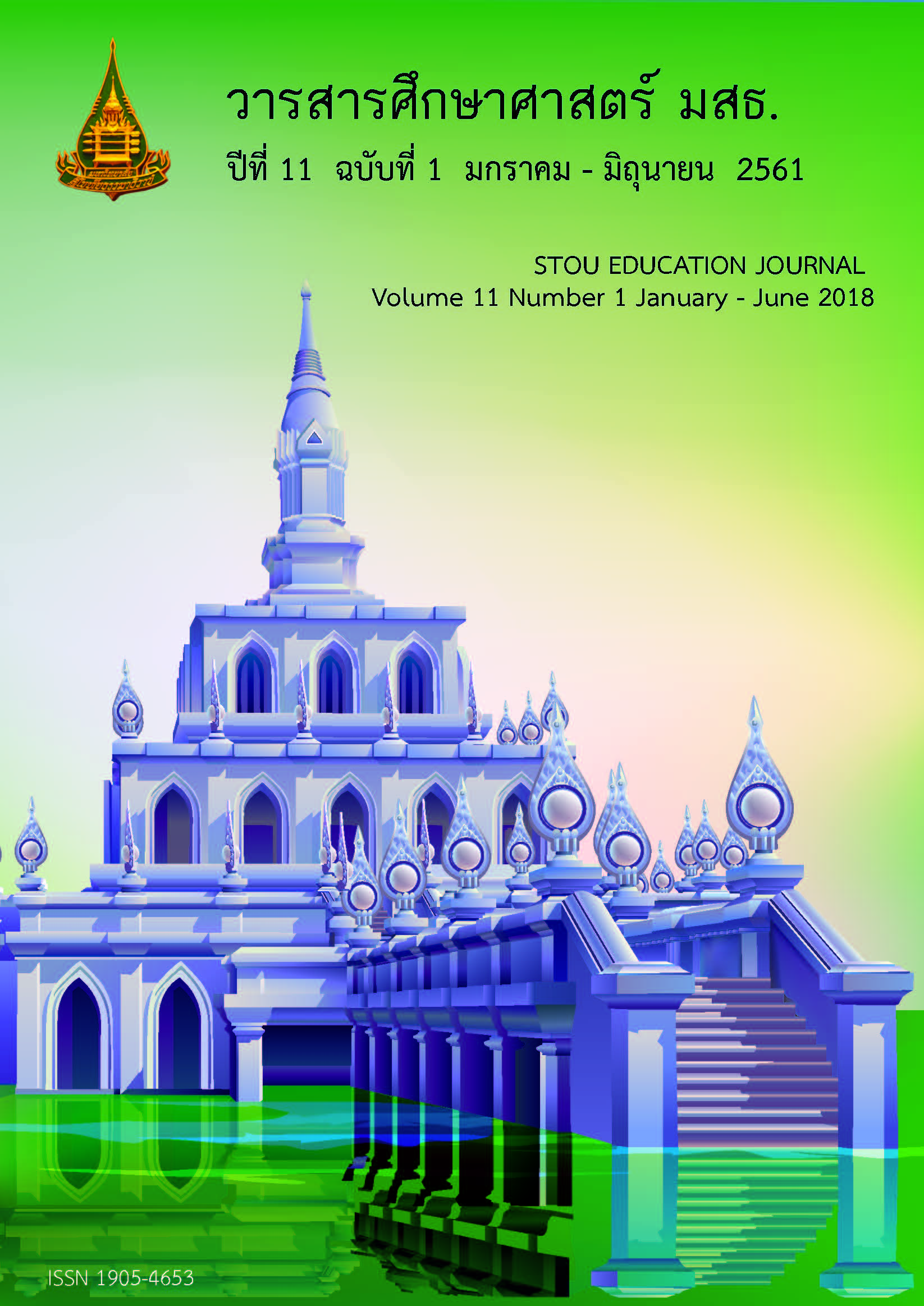การเรียนรู้ร่วมกันระหว่างผู้สูงอายุและเด็ก: รูปแบบและผลลัพธ์ของหลักสูตร
Main Article Content
บทคัดย่อ
บทความนี้มีวัตถุประสงค์เพื่อรวบรวมองค์ความรู้เกี่ยวกับหลักสูตรการเรียนรู้ร่วมกันระหว่างผู้สูงอายุและเด็กหรือเยาวชน ด้วยวิธีวิจัยเอกสาร จากการคัดเลือกเอกสารวิชาการภาษาอังกฤษเกี่ยวกับการเรียนรู้ร่วมกันระหว่างผู้สูงอายุและเด็กหรือเยาวชนที่ไม่ใช่การทำกิจกรรมภายในครอบครัว จากฐานข้อมูล SCOPUS ระหว่างปี พ.ศ. 2550 – 2559 ใช้วิธีการวิเคราะห์เนื้อหาและการวิเคราะห์แก่นสาระ ผลการศึกษา พบว่า หลักสูตรแบ่งเป็น 4 รูปแบบ คือ ผู้สูงอายุและเด็กให้บริการซึ่งกันและกันหรือร่วมกันให้บริการชุมชน ร้อยละ 16.5 ผู้สูงอายุให้บริการเด็กหรือเยาวชน ร้อยละ 13.6 เด็กหรือเยาวชนให้บริการผู้สูงอายุ ร้อยละ 6.8 บุคลากรเป็นผู้ให้บริการเป็นหลัก ร้อยละ 6.8 และส่วนที่เหลือไม่ได้ระบุรูปแบบไว้ในเอกสาร ผลลัพธ์ของหลักสูตรแบ่งตามกลุ่มที่ได้รับผลกระทบเป็น 3 กลุ่ม คือ เด็กหรือเยาวชน ผู้สูงอายุ และชุมชนหรือสังคม ประโยชน์จากการเข้าร่วมหลักสูตรที่มีต่อบุคคลแบ่งเป็นด้านทัศนคติ ด้านสุขภาพกายและสุขภาพจิต ด้านทักษะและความรู้ และด้านพฤติกรรม ความท้าทายของการพัฒนาองค์ความรู้ด้านนี้ คือ การถอดองค์ความรู้จากการนำหลักสูตรการเรียนรู้ร่วมกันระหว่างผู้สูงอายุและเด็กหรือเยาวชนไปปฏิบัติจริงในพื้นที่บริบทของประเทศไทย


